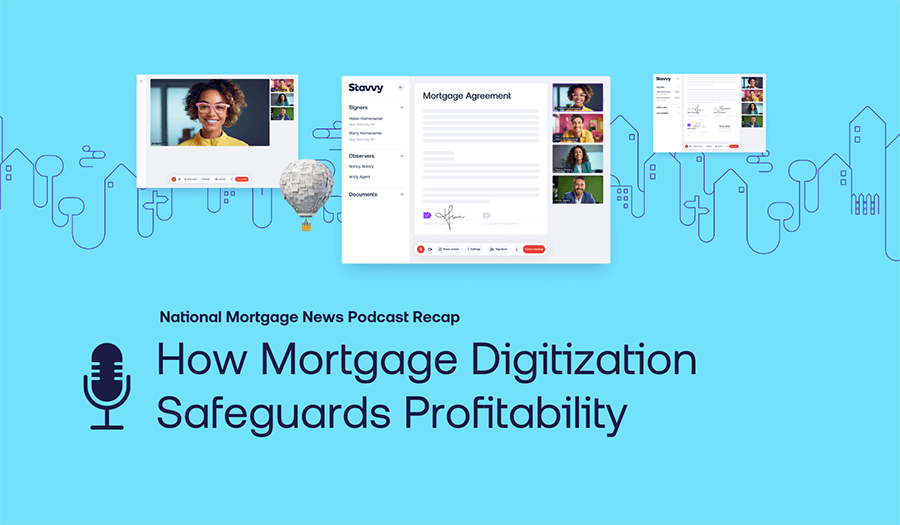The state of New York has taken a significant step towards the modernization of real estate transactions by officially endorsing the permanent use of remote online notarization (RON). This legislative advancement marks a noteworthy development for title agents and mortgage professionals in New York, allowing notaries to leverage digital technology for notarizing documents remotely. The legislation sets specific requirements for RON, including the adoption of standards for technology platforms and notary protocols, with the goal of making real estate closings safer and more secure. By moving away from the traditional paper-based process, leveraging RON can offer greater accessibility and convenience in the closing process for all parties involved.
What are the requirements for remote online notarization (RON) in New York?
As of January 31, 2023, New York notaries can apply to perform remote online notarization. The regulations issued by the Secretary of State outline several conditions for RON, including technology platform, notary, and electronic notary requirements.
Technology platform requirements
New York requires technology platforms to:
- Permit sufficient audio and visual clarity to enable the notary and signers to see and speak to each other simultaneously through live, real-time transmission during the notarial act through and including identity verification, identity proofing, and signature of any parties present during the transaction without interruption
- Permit sufficient visual clarity to enable the notary to view, read, and capture the front and back of any identification card presented as verification of identity
- Have a signal transmission secure from interception through lawful means by anyone other than the parties to the notarial act
- Have a process of reproduction that does not permit additions, deletions, or changes without leaving a record of such additions, deletions, or changes
- Provide some manner of ensuring that the electronic record that is presented for electronic notarization is the same record electronically signed by the principal
- Permit recording and archiving of the audio-video communication session; the electronic notary shall keep a copy of the recording of the video and audio conference for at least ten years from the date of the transactionAffix a reliable electronic signature to electronic records that is unique to the notary public and attached or logically associated with an electronic record by use of a digital certificate that utilizes public key infrastructure capable of independent verification; the digital signature must be retained under the notary’s sole control
- Ensure that the electronic signature must provide that any subsequent alterations to the underlying record are detectable and may invalidate the electronic notarial actEnsure that the remote online notarial certificate for an electronic notarial act must clearly state that the person making the acknowledgment or making the oath appeared using communication technology
Notary requirements
New York requires notaries to register with the Secretary of State’s office before performing an electronic or remote online notarization.
Electronic notary requirements
New York electronic notaries must meet the following additional registration and compliance steps to perform RON:
- Register with the Secretary of State to perform electronic notarizations
- Ensure the technology vendor selected complies with New York regulations and standards;. Tthe Secretary of State does not require vendor registration or approval.
- Use a network that permits location detection when performing the electronic notarial act
- Provide a description of the technology the notary will use in attaching the notary’s signature to the electronic record, which may be effectuated by registering the name of the vendor the notary will use
- Provide an exemplar of the notary’s electronic signature
- Be physically present in New York when performing an electronic notarization
- Obtain satisfactory evidence of the identity of the signer or other individual appearing before the notary
- Disqualify themselves from performing notarial acts for transactions where the notary has a conflict of interest or would benefit financially from the transaction
- Refuse to perform a notarial act when the notary is not satisfied that the official record or the presented record evidences the individual’s capacity to complete the notarization
- Use a technology platform that meets all of the requirements outlined above
- Maintain a journal identifying electronic notarial acts, identification of the communication technology, certification authority, and verification providers used
Whether performing a traditional or electronic notarization, the new regulations require the notary public to obtain satisfactory evidence of the signer’s identity. Similar to a traditional notarization, the notary can obtain satisfactory evidence through personal knowledge, an oath, or an affirmation from a credible witness. If the notary lacks personal knowledge or an oath or affirmation, the notary can prove the signer's identity through identity proofing. Identity proofing is a process where the signer provides government identification to validate their identity.
When the signers are remote, they present the back and front of their unexpired government-issued identification card that contains both a photographic image and a signature. After presenting their identification, a third-party provider will confirm the signer's identity by utilizing both public and private data sources. The identity proofing must meet the minimum standards for level 2 outlined in the Digital Identity Guidelines of the National Institute Standards and Technology. This involves the remotely located signer answering a series of questions known as knowledge based authentication or KBA. Stavvy’s identity proofing process requires all signers to present personal information and credentials to evidence that they are the owner of the identity they are claiming. All the information which is provided is validated before the signer can be verified as the true owner of the claimed identity.
What are the benefits of using RON in New York?
RON has several advantages over traditional notarization. Below are four potential benefits for those interested in implementing RON into their mortgage and real estate closing workflows.
4 benefits of RON for New York mortgage and real estate professionals
1. RON makes New York real estate closings more convenient and accessible for customers.
Traditional notarization does not offer the most sophisticated customer experience, nor is it always accessible for busy people. In real estate closings, it is customary for signers to locate a state-issued notary and take time out of their day to travel to a physical location to get legal documents notarized. This process can sometimes take hours, often requiring time out of work and access to reliable childcare and transportation. RON removes these cumbersome barriers and allows customers to have their essential documents notarized from the comfort of their own homes or the place of their choosing.
2. Remote online notarization adds an extra layer of security to real estate closings in New York.
RON often invites some level of skepticism, particularly regarding security and whether or not it is as safe a practice as traditional notarization. However, top RON technology providers put security at the forefront of their digital designs and ensure that their capabilities comply with federal, state, and local laws. For example, the Stavvy platform is certified MISMO® compliant, SOC 2 Type 2 compliant, enables notaries to deploy multiple means of identity verification, and provides tamper-sealed transactional documents, digital audit trails, and secure meeting links. In addition, Stavvy’s legal, industry, and regulatory teams reviewed the New York RON law closely to ensure the platform meets all regulatory requirements.
3. RON helps residential mortgage lenders and title agents grow their businesses in New York.
Utilizing a digital mortgage platform with an eClosing solution and RON feature, like Stavvy, helps real estate professionals achieve operational efficiency. An eClosing with RON reduces the volume of paper, postage, travel, and coordination required per closing, saving organizations time and money.
4. Remote online notarization is a sustainable option for New York mortgage professionals.
The workflows for traditional mortgage closings require lenders and title companies to transport, process, and store large amounts of paper. RON provides an opportunity to reduce the amount of paper, postage, and travel by utilizing technology and electronic documents. In doing so, RON makes the mortgage industry more environmentally responsible.
How is Stavvy ensuring regulatory compliance?
Stavvy has built its platform to comply with rigorous security standards, including the enhanced identity verification standards required by the New York Secretary of State. The Stavvy platform is MISMO® compliant, SOC 2 Type 2 compliant, enables notaries to deploy multiple means of identity verification, and provides tamper-sealed transactional documents, digital audit trails, and secure meeting links. We stand ready to assist our clients, both old and new, in navigating the registration process to become approved remote electronic notaries on the Stavvy platform.
What are the next steps for New York real estate professionals?
Now is the perfect time for New York real estate professionals, particularly lenders and title professionals, to talk with stakeholders about digitizing their closing process with technology and understanding their title insurance underwriters' appetite for RON.
Having a conversation with title insurance underwriters and partners upfront to confirm acceptance of utilizing RON and reviewing how to implement RON technology is time and resources well spent. Prioritizing this due diligence will give you time to incorporate RON technology into your workflows ahead of your competitors, giving you a leg up.
DISCLAIMER: Because of the generality of this update, the information provided herein may not be applicable in all situations and should not be acted upon without specific legal advice based on particular situations.
Stavvy has summarized the New York regulations to aid customers with understanding the changes and requirements. This outline is intended to provide general information about selected regulations for notaries and the applicable laws and regulations should be consulted for all questions or conflicts. This summary is intended to be a resource and not authoritative and the notary reference manual and website should be consulted for confirmation of all items herein. https://dos.ny.gov/notary-public#remote-notarization-faqs
Editor's note: This post was originally published in July 2022 and is refreshed as updates become available.
Learn more about how the Stavvy Platform is taking real estate beyond documents.



![[Webinar Recap] Advancing Your Digital Default Servicing Strategy](https://blog.stavvy.com/hubfs/advancing-your-digital-default-servicing-strategy-blog-recap.png)